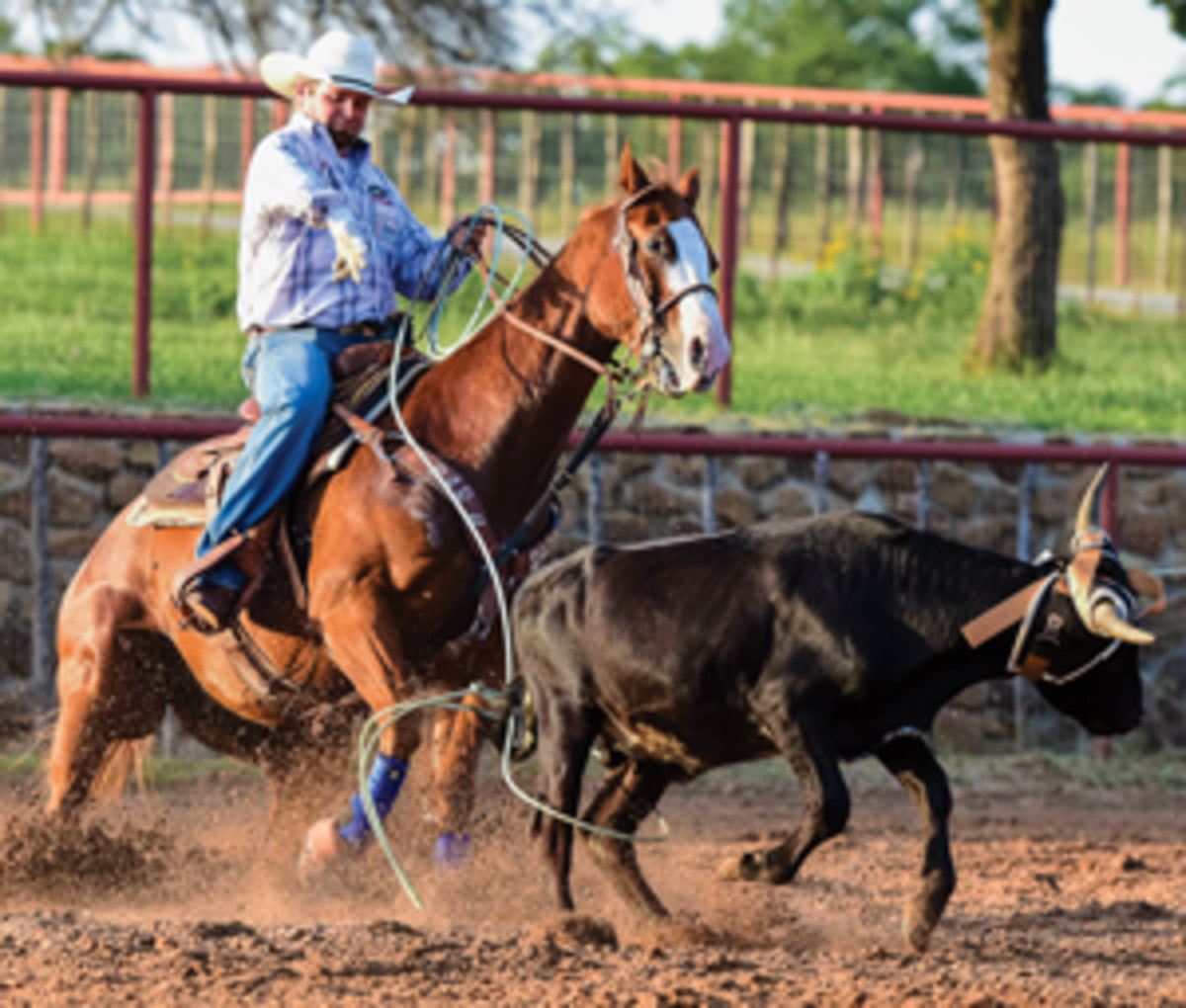Once, when Jim Ross Cooper was headed home from the National High School Finals Rodeo at age 15, he challenged his dad, 1981 All-Around World Champ and ProRodeo Hall of Famer Jimmie Cooper to a match. After all, his dad had been retired for 13 years at that point.

“I said, ‘I got you,’” Jim Ross remembered. “Jake was working the gate, and Dad ran five in a row. He just stepped right off there and tied them all in 8 like it was the easiest thing. I didn’t even get on my horse. I said, ‘Ok. You got me.’”
Growing up with world champion dads as an example has its challenges and its perks for the sons of the sports’ greats, and each father-son combo has managed it differently. Here’s each son’s perspective on their father’s coaching and parenting style.
Jake Cooper
Dad didn’t push us into it at all. We didn’t start roping seriously until we were 13 or 14. He was one of those guys who said if we were going to do it, we were going to be the best. If we were gong to rope, we had to make all As at school. If we skipped a day of practice, we couldn’t go to the junior rodeo that weekend. He breaks down what we do and tells us what we do well, too. We were never wondering what he thought about it. He would always try to find something positive to say.
Jim Ross Cooper
Our rookie year, a lot of the announcers would announce me as the all-around world champ roping with my son Jake heading. I was 20 years old, and everyone just thought I was my dad cracking back out. That’s part of the reason I started going by Jim Ross. But that was never Dad’s choosing, as far as being in the spotlight while we were roping. Dad always wanted out of the spotlight, and he was the first to push us up to the front. I don’t know how you’d be a better coach or father. That was hard for him separating the two. He was always really good to us. My dad retired so early that I don’t really remember going to the NFR watching him or anything like that. I never felt like we were in his shadow, even if announcers would get confused sometimes.
Ryan Motes
I didn’t really rope much until I was 15. My dad and I always had a really good relationship, but until my rookie year, we never really rodeoed together. I got to learn a whole bunch from him right then. He had been there and done that, and as far as being a rookie learning how to enter and handle business, I got an upper hand on all of that rodeoing with someone who had done it for 25 or 30 years. It was a big advantage having him there.
But growing up, Dad and I got to rope some, but not on a daily basis being pushed to go to every jackpot. A lot of people assume you should be good just because you’re brought up in that lifestyle—that if your dad was good, you should be good. It could be an advantage, but we’ve got to prove ourselves. You don’t get any big props being someone’s kid. It’s assumed that you will be good just because, but the amount of work it took was the same as anyone else.
Tuf Cooper
Having a famous dad has been the biggest advantage I could have. There was added pressure, but it was the best kind of pressure because I was expected to do well. I would rather be expected to do well instead of being expected to do badly. I didn’t have a choice to work at it—I wanted to be what everybody expected.
Whenever you’re not doing well, in the middle of the season, that’s when Super Looper is at his very best. It’s the weirdest thing—I haven’t met anybody else in the rodeo world who has the super power to bring you up when you’re down. He’s going to keep it simple and give you the confidence you need to keep moving and go back.
I was able to learn from my two older brothers, and see how my dad coached them. I was able to see my future through them. By the time I was ready to rope, we were all three roping every day in the practice pen. He retired when I was 10 years old, so he was going full force as a coach for his boys then. One time he made me so mad. I was roping bad, and he said, ‘Get out there and rope as tough as everybody says you are.’ I was roping bad when he said that, and then I started to get after it. I don’t think any rodeo parents are ever soft on their kids—he gave us every opportunity and loved us. But he was never soft, showing us the mistakes we were making. He pushed us but he never forced us to do anything.










